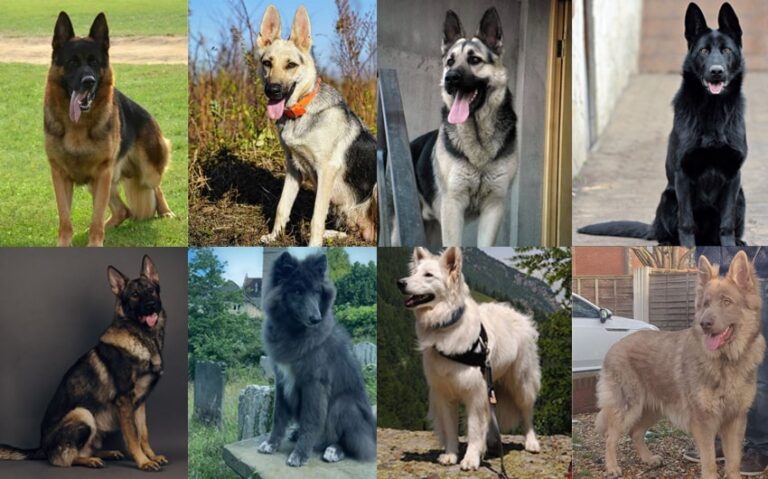8 Major Reasons Why Dachshunds Are the Worst Breed to Own
Dachshunds might look like adorable little sausages on legs, but owning one can come with plenty of challenges that new owners often don’t expect. From their stubborn attitudes to their surprising energy levels, these small dogs can quickly take over your life in ways you might not imagine.
If you’ve ever wondered why dachshunds are the worst breed for some people, it’s not just about their barking or digging—there’s a whole list of quirky traits that make them a handful. Whether you’re a dog lover or a frustrated dachshund owner, get ready to laugh and nod along!
8 Reasons Dachshunds Are Hard to Handle
1. Stubborn to the Core: Independent Streak

Dachshunds are notoriously headstrong, and their independent streak can be one of their most frustrating traits. Unlike more obedient breeds like golden retrievers or border collies, dachshunds often march to the beat of their own drum. Training them can feel like negotiating with a toddler, especially when it comes to commands like “sit” or “stay.”
Housebreaking a dachshund can be particularly tough, with many owners finding that it takes much longer than expected. Their stubbornness doesn’t just stop with training—sometimes they’ll ignore you altogether, even if they clearly understand what you want.
This relentless independence can make owning a dachshund an ongoing test of patience, and they’re definitely not a breed that responds well to harsh discipline or strict routines. Dachshund owners quickly learn that flexibility, creativity, and a lot of treats are essential to getting through to these little dogs.
2. Excessive Barking: Your New Alarm System
If there’s one thing dachshunds love, it’s using their voice. These little dogs have big personalities, and they’re not shy about letting the world know it. Originally bred to hunt badgers and other burrowing animals, dachshunds have an instinctive need to alert their owners to every single sound, whether it’s a knock at the door, the mailman coming down the street, or even just a squirrel in the yard.
This barking can quickly get out of hand, turning a peaceful afternoon into a chorus of relentless yaps. For apartment dwellers, a dachshund’s constant barking can be a nightmare, especially when neighbors complain about the noise. Even for those with more space, the nonstop alerts can wear down your patience.
You might find yourself wondering if your dachshund even knows how to relax without constantly scanning the environment for something to bark at. While their alertness can be useful, the trade-off is a home that’s rarely quiet.
3. High Prey Drive: Say Goodbye to Small Pets
Dachshunds may be small, but they have the hunting instincts of much larger dogs. Originally bred for digging and chasing after small animals like badgers and rabbits, dachshunds have a strong prey drive that can be challenging for households with other pets.
If you have cats, birds, or even small dogs, you may find that your dachshund’s natural instincts kick in, causing them to chase and harass their smaller housemates. This can be especially stressful if you’ve got a multi-pet household, as you’ll constantly have to keep an eye on your dachshund to prevent any aggressive behavior.
Walking them off-leash can also be tricky, as they’re likely to take off after squirrels, rabbits, or even a passing bird. Once they’re in “hunter mode,” it can be hard to call them back. For some owners, this high prey drive turns walks and playtime into a frustrating challenge, as their dachshund constantly pulls or lunges toward anything that moves.
4. Prone to Back Problems: The Vet Bills Pile Up

One of the most serious issues dachshund owners face is their breed’s tendency toward back problems. Due to their unique body shape—a long torso and short legs—dachshunds are particularly prone to a condition known as intervertebral disc disease (IVDD). This can cause severe pain, limited mobility, and in extreme cases, paralysis.
Owners often have to take special precautions, such as avoiding stairs, jumping on furniture, or rough play, to reduce the risk of injury. Even with the best care, many dachshunds still experience back problems, which can lead to expensive surgeries or long-term medical treatments.
These health issues not only take a toll on your wallet but can also be emotionally draining, as it’s hard to see your dog in pain. For some owners, the constant worry about their dachshund’s back health overshadows the joys of owning one.
5. Overly Attached: Clingy and Needy
Dachshunds are known to form incredibly strong bonds with their owners, which can be both a blessing and a curse. While their loyalty is endearing, it often translates into clingy behavior that can be overwhelming. Dachshunds don’t like being left alone and can become highly anxious when separated from their favorite person.
This can lead to destructive behavior, such as chewing furniture or scratching doors when you’re away, as well as excessive whining or barking. Their need for constant attention can be a challenge for busy owners, especially if you work long hours or travel frequently. Some dachshunds also struggle with separation anxiety, which requires special training and attention to manage.
While their affectionate nature can be sweet, it can also feel suffocating at times, as your dachshund always wants to be by your side, following you from room to room and demanding constant interaction.
6. Aggression in a Small Package
Despite their small size, dachshunds can be surprisingly aggressive, especially if they feel threatened or startled. This feisty nature can lead to nipping or biting, particularly around strangers, children, or even other dogs. Their bold personality comes from their hunting background, and they often don’t realize how small they are, acting much tougher than their size would suggest.
While not every dachshund is aggressive, many owners report that their dog is quick to growl or snap in situations where they feel uncomfortable or protective. This can make them a tricky breed for families with young children, who might not understand the dachshund’s boundaries.
Socializing a dachshund early and consistently is essential, but even with training, their natural inclination to be protective and defensive can make them less predictable in certain environments. If you’re not prepared for a dog that can be both bold and occasionally aggressive, a dachshund might not be the best fit.
7. Digging Mania: Your Garden’s Worst Enemy

Dachshunds love to dig—it’s in their DNA. Originally bred to dig into badger dens and burrow underground, they have a natural instinct to dig up anything and everything. If you have a garden or enjoy maintaining a neat lawn, your dachshund might become your worst enemy. Many dachshund owners find their yards littered with holes as their dog goes on a digging spree, searching for critters or simply satisfying their natural urges.
While some dogs dig only out of boredom, dachshunds dig because it’s part of who they are. Stopping this behavior can be extremely difficult, as it’s tied to their hunting instinct. Even with plenty of exercise and stimulation, many dachshunds will continue to dig just for the fun of it. Training them to avoid certain areas or providing designated digging spots can help, but you’ll likely have to accept that your dachshund will always have a special interest in tearing up your yard.
8. Selective Hearing: The Dachshund Will Do What It Wants
Anyone who’s owned a dachshund knows that they seem to have “selective hearing.” While they may understand commands perfectly well, they often pretend not to hear them if it doesn’t suit their mood. Dachshunds are intelligent dogs, but their independent streak can make them appear stubborn or defiant.
Whether it’s coming when called or staying off the furniture, dachshunds will often only obey when it aligns with what they want to do. This can be especially frustrating for owners trying to enforce consistent rules in the household. No matter how well-trained they are, there will always be moments when your dachshund decides that listening isn’t a priority.
This behavior can lead to dangerous situations, like refusing to come when called while off-leash, making training not just an option, but a necessity. Owners need to be prepared for the dachshund’s willful nature and learn to laugh off those moments when their dog decides to march to the beat of its own drum.







